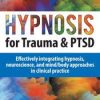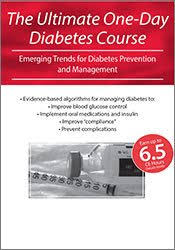The Ultimate One-Day Diabetes Course – Tracey Long
$199.00 Original price was: $199.00.$56.00Current price is: $56.00.
Proof of item:
Evidence-based algorithms for managing diabetes to:
- Improve blood glucose control
- Implement oral medications and insulin
- Improve “compliance”
- Prevent complications
Whatever your specialty, you can expect to see more patients who:
- Have blood sugars above 200
- Are overweight or obese
- Have complications of diabetes
- Have heart disease
- Do not follow their diets
- Need to, but refuse to, start insulin
- Are not using an insulin pump
As healthcare providers, we are patient educators and advocates for our patients’ needs. It is imperative that we understand their disease processes, medication regimens, and lifestyle management and coping skills. Join expert, Tracey Long, Ph.D (c), RN, BSN, MS, MSN, CDE, CNE, CHUC, CCRN, as she addresses all of these areas during this comprehensive program. New strategies for the treatment and prevention of this epidemic-level disease. Empower your patients to better manage their diabetes and improve their quality of life.
OUTLINE
Pathophysiology and Diagnostic Criteria
- Type 1 Diabetes and Subtypes
- Metabolic Syndrome
- Type 2 Diabetes
- Diabetes in pregnancy
Obesity and Sedentary Lifestyle
- Diagnostic Criteria for Obesity – BMI
- Central Adiposity – Pathophysiology for Cardiovascular Risk
- Lipid disturbance
- Prothrombotic state
ADA Clinical Guidelines for Treatment
- Algorithms for Treatment
- Lifestyle change
- Medication use
- Lab monitoring
- Recognition and prevention of complications
Medications
- Pharmacology/Mechanism of Action of Each Medication Class
- “Add on” Progression
- Oral medications
- Non-insulin injectables
- Insulin regimens – including basal/bolus insulin
Risk Reduction
- Signs, Symptoms and Diagnostic Criteria for:
- Acute complications: DKA, HHS
- Chronic complications:
- Nephropathy
- Retinopathy
- Neuropathy
- Cardiovascular Disease
AADE7™ Healthy Behaviors for Diabetes Self-Management
- Healthy Eating
- Being Active
- Monitoring
- Taking Medication
- Problem Solving
- Healthy Coping
- Reducing Risks
OBJECTIVES
- Summarize an overview of Diabetes Mellitus and its impact both locally and nationally.
- Discuss the pathophysiology and diagnosis of: Type 1 diabetes, metabolic syndrome and glucose intolerance, Type 2 diabetes, and gestational diabetes.
- Assess obesity and sedentary lifestyle, and their impact on insulin resistance and cardiovascular risk.
- Discuss the ADA Clinical Guidelines for diabetes treatment and treatment goals.
- Compare the use of oral medications, injectables and insulin regimens in helping to meet treatment goals.
- Explain the AADE7™ “Behavior Goals” in education for self-management of diabetes.
- Determine ways to reduce risk through the recognition and prevention of acute and chronic complications of diabetes.
Tag: The Ultimate One-Day Diabetes Course – Tracey Long Review. The Ultimate One-Day Diabetes Course – Tracey Long download. The Ultimate One-Day Diabetes Course – Tracey Long discount.
1 review for The Ultimate One-Day Diabetes Course – Tracey Long
| 5 star | 100 | 100% |
| 4 star | 0% | |
| 3 star | 0% | |
| 2 star | 0% | |
| 1 star | 0% |
Sorry, no reviews match your current selections
Q & A
Related products
Personal Development
Personal Development
Personal Development
Personal Development
Reuben Brooks – The Ultimate Transformation – Meal Plan & Training Program
Personal Development
Personal Development
Personal Development
Personal Development
Cameron Blas – Filming And Editing Mastery With Final Cut Pro X














Very Nice | The Ultimate One-Day Diabetes Course – Tracey Long